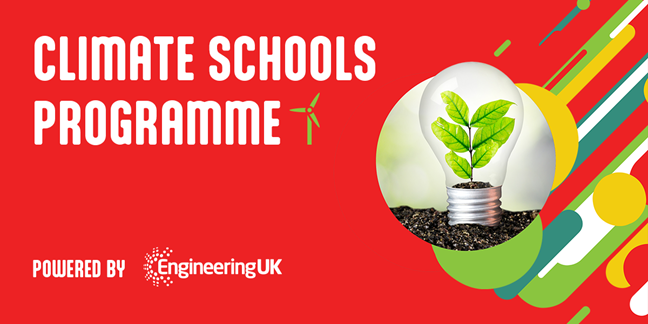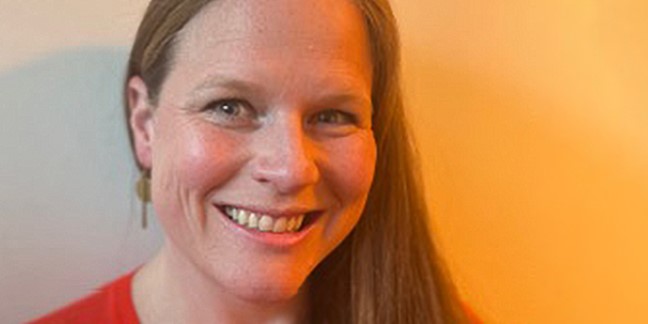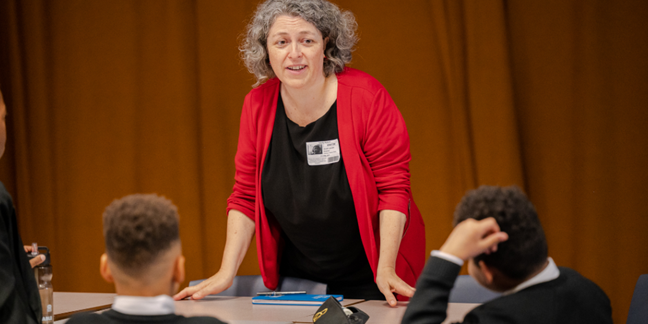May 3, 2024

Over the past 9 years, more than 200,000 students in 1,350 different schools across the UK participated in Energy Quest, funded by Shell. The workshop, which focuses on alternative energy production, also looks at the way engineering is involved in the production of that energy. The programme also presents concepts such as the real-world application of practical experiments, problem solving and using teamwork to find solutions. One student reported it was the first time they knew the answer to the question “What is an engineer?”.
Two recent evaluation reports about the Energy Quest programme were published in April. CFE Research has conducted an independent evaluation of Energy Quest over the last three years, exploring young people’s views and experiences of the workshop across various versions of the content (as new iterations were delivered each year). Their report presents insights gathered from more than 1,200 students and close to 100 teachers who participated in an Energy Quest workshop and completed a post-event survey. EngineeringUK’s team also conducted our own evaluation with a smaller cohort of participants, surveying just over 100 young people both before and after taking part in the workshops.
CFE’s evaluation of the most recent iteration of the programme found that young people reported being more knowledgeable about engineering because of Energy Quest:
- 87% of young people said that their knowledge of the different types of things that engineers can do in their jobs had increased.
- 81% of respondents reported that their knowledge of role that engineers play in developing technologies for renewable energy sources had increased.
The data from EngineeringUK’s more modest cohort of young people broadly agreed with the findings from CFE, in that the workshop is most effective at raising awareness of engineering careers, but the workshop alone may not be sufficient in creating a commitment to pursue engineering careers among young people. This finding is not surprising considering participation in a one-off workshop and aligns with broader evidence suggesting the need for multiple STEM engagements to foster student’s interest in these careers over time.
Overall, Energy Quest was an engaging and enjoyable experience for the majority of young people, with students enjoying the latest version of the workshop more than previous ones. The practical activities in particular were perceived to be the most interesting and engaging element. One major takeaway from CFE’s research is that younger students both enjoy the workshop more than their older peers, and also find the story element which frames the workshop to be more convincing and more believable than older students.
Findings from the evaluations also highlighted teachers’ positive views of the programme, with 96% of survey respondents rating the programme as good or excellent. Additionally, 95% of teachers said the workshop was engaging for their students. One teacher reported “I enjoyed the practical tasks and the discussions around engineering. It was useful to think of the different types of engineers that exist.”
You can download both reports from our Research Evaluation page.
Following on from this evaluation, Energy Quest has now been relaunched as a teacher-led workshop aimed specifically at younger students aged 11 to 13 in secondary school. Without having to arrange a science, technology, engineering or maths (STEM) specialist facilitator to visit the school and present the workshop, this new iteration is something that can be presented as and when teachers are able.
This version of Energy Quest is a free, curriculum linked, immersive workshop designed to unlock their inner engineer as they explore alternative energy sources. The workshop includes a choice of practical experiments and design exercises which enable students to understand more about the role of engineers. It uses a small amount of equipment that should be available in all school science labs.
Teachers interested in downloading these free lesson plans and resources should visit the Energy Quest website: energyquest.org.uk
< Back to News & Views


